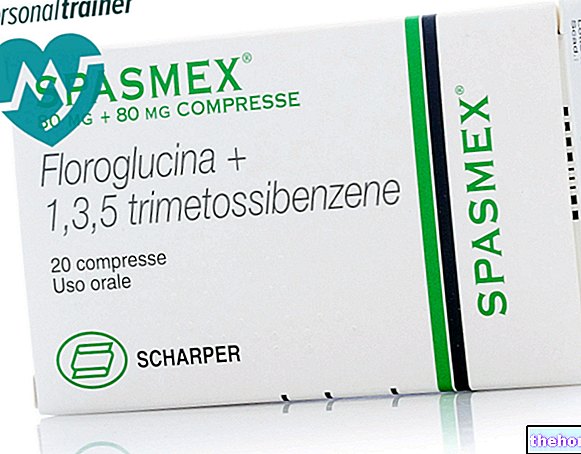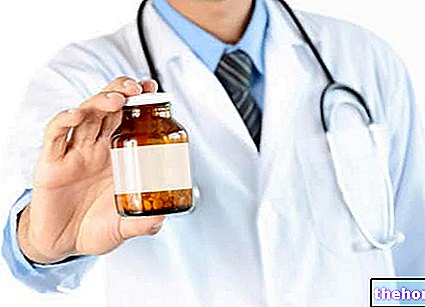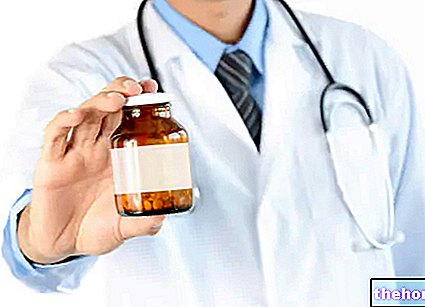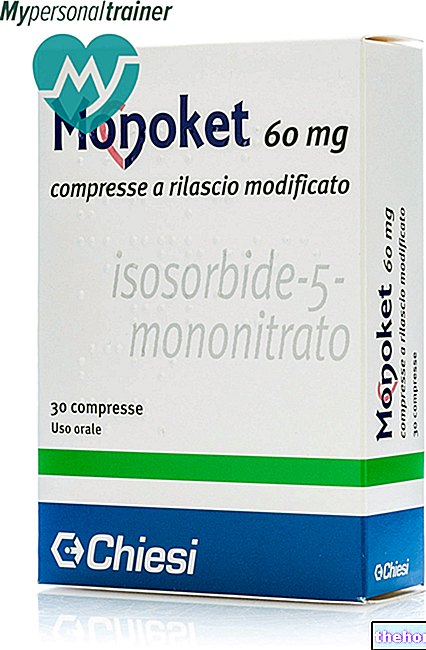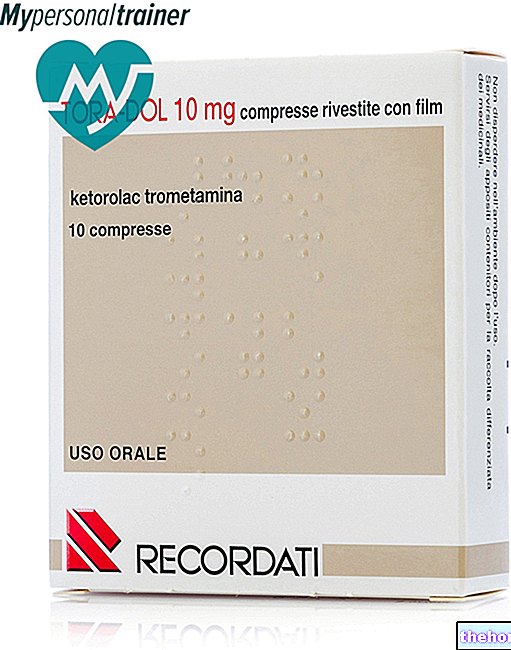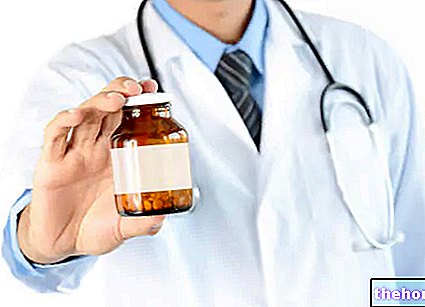Active ingredients: Ibuprofen
ACTIBU FEVER AND PAIN 400 mg film-coated tablets
Indications
What is Actibu Fever and Pain and What is it for?
ACTIBU FEVER AND PAIN 400 mg film-coated tablets contain ibuprofen, an active substance that belongs to a group of medicines called non-steroidal anti-inflammatory drugs (NSAIDs), which is used to reduce pain and fever.
ACTIBU FEVER AND PAIN is indicated for adults and adolescents over 12 years of age for the relief of mild to moderate pain, including headache, toothache, period pain, mild muscle and joint pain, and for fever.
Contraindications
When Actibu Fever and Pain Should Not Be Used
Do not use ACTIBU FEVER AND PAIN if:
- You are allergic to ibuprofen or any of the other components of this;
- Have had shortness of breath, asthma, runny nose, swelling or itchy rash after taking acetylsalicylic acid (aspirin) or other related pain relievers (NSAIDs);
- Have a history of stomach or intestinal bleeding or perforation caused by previous NSAID therapy;
- Have (or have had two or more episodes of) a "stomach ulcer or bleeding from the stomach or duodenum;
- Have stomach problems;
- Suffer from severe liver, kidney or severe heart failure;
- You must have or have had a "heart surgery;
- You are pregnant or think you are pregnant or are breastfeeding.
DO NOT use ACTIBU FEVER AND PAIN in children under 12 years of age.
Precautions for Use
What you need to know before taking Actibu Fever and Pain
Talk to your doctor or pharmacist before taking ACTIBU FEVER AND PAIN if:
- Has severe skin reactions such as exfoliative dermatitis, Stevens-Johnson syndrome or toxic epidermal necrolysis. Immediately stop treatment with ACTIBU FEVER AND PAIN at the first appearance of a skin rash, mucosal lesions, or any other signs of allergic reactions;
- Have or have ever had intestinal problems or diseases (ulcerative colitis, Crohn's disease). Immediately stop treatment with ACTIBU FEVER AND PAIN at the first appearance of any stomach or intestinal disorder, especially if it is bleeding;
- Have or have had asthma;
- You are elderly, as you are more likely to have side effects;
- Suffer from liver disease;
- You have kidney problems, as you may need a dose reduction (see section 3 - Patients with kidney problems);
- Have swelling (fluid retention or edema), high blood pressure (hypertension) or heart disease;
- You are trying to become pregnant (ibuprofen belongs to a group of drugs, NSAIDs which may reduce fertility in women. The effect is reversible after stopping the drug - see "Pregnancy, breastfeeding and fertility");
- You are taking low-dose aspirin (acetylsalicylic acid) (see "Other medicines and ACTIBU FEVER AND PAIN");
- If you are taking other NSAIDs. Concomitant use with other NSAIDs, including specific cyclo-oxygenase-2 inhibitors, increases the risk of adverse reactions.
Side effects can be reduced by using the lowest dose for the shortest period of time.
Anti-inflammatory / pain-relieving drugs such as ibuprofen may be associated with a modest increased risk of heart attack or stroke, especially when given in high doses. Do not exceed the recommended dose or duration of treatment (3 days).
You should discuss your therapy with your doctor or pharmacist before taking ACTIBU FEVER AND PAIN if you have:
- Heart problems, including heart attack, angina (chest pain) or if you have a history of heart attack, coronary artery bypass surgery, peripheral arterial disease (poor circulation in the legs or feet due to narrowing or blocked arteries), or any type of stroke (including "mini-stroke" or "TIA", transient ischemic attack); or think you may be at risk for these conditions (for example, have heart failure).
- High blood pressure, diabetes, high cholesterol, family history of heart disease or stroke, or if you are a smoker.
In general, frequent use of painkillers can lead to severe kidney problems. This risk may be increased in patients who have kidney problems, in the elderly, or in dehydrated patients. In dehydrated adolescents there is a risk of impaired kidney function. Face be careful to take this drug if you are in any of the above conditions.
Interactions
Which Drugs or Foods Can Change the Effect of Actibu Fever and Pain?
Tell your doctor or pharmacist if you are taking or have recently taken, or taken or might take any other medicines, even those obtained without a prescription, especially any of the following:
- Acetylsalicylic acid or other NSAIDs (anti-inflammatory and analgesic): as this can increase the risk of gastrointestinal ulcers or bleeding;
- Diuretics (drugs that increase diuresis, for example furosemide);
- Medicinal anticoagulants that have an anticoagulant effect (i.e. substances that thin the blood by preventing the formation of clots, e.g. aspirin / acetylsalicylic acid, warfarin, ticlopidine);
- Antihypertensives, medicines that reduce high blood pressure (ACE inhibitors such as captopril, beta blockers such as atenolol, angiotensin II receptor antagonists such as losartan);
- Lithium and selective serotonin reuptake inhibitors (SSRIs eg fluoxetine), used for the treatment of mood disorders;
- Corticosteroids (drugs used for severe asthma or against allergic reactions);
- Any other medicines containing ibuprofen or NSAID pain relievers, including those you can buy without a prescription;
- Methotrexate, a drug used in tumors.
Also some other medicines can influence or be affected by the treatment with ACTIBU FEVER AND PAIN. Therefore, always consult your doctor or pharmacist before using ACTIBU FEVER AND PAIN with other medicines.
ACTIBU FEVER AND PAIN with food and drink and alcohol
Take the drug after breakfast, after lunch or after dinner or in any case on a full stomach, especially in case of gastric disorders.
Some side effects, such as those affecting the stomach or intestines, may be more likely when you drink alcohol while taking ACTIBU FEVER AND PAIN.
Warnings
It is important to know that:
Pregnancy, breastfeeding and fertility
Pregnancy
If you are pregnant or think you are pregnant DO NOT take ACTIBU FEVER AND PAIN as it may increase the risk of miscarriage, birth defects or complications during delivery.
Feeding time
If you are breastfeeding, DO NOT take ACTIBU FEVER AND PAIN.
Fertility
Ibuprofen belongs to a group of drugs (NSAIDs) that may reduce fertility in women. This effect is reversible upon discontinuation of the drug. It is unlikely that this drug, if taken occasionally, will cause fertility problems; however, consult your doctor before using ACTIBU FEVER AND PAIN if you have problems getting pregnant (see "Warnings and precautions").
Ask your doctor or pharmacist for advice before taking any medicine.
Driving and using machines
ACTIBU FEVER AND PAIN can cause drowsiness, dizziness and depression. Take special care before driving or using machines.
Dose and Method of Use
How to use Actibu fever and pain and dosage
Always take this medicine exactly as described in this leaflet or as directed by your doctor or pharmacist. If in doubt, consult your doctor or pharmacist.
For short term use only.
Adults and adolescents over 12 years of age: 1 tablet up to a maximum of 3 times a day. Take the dose needed to relieve symptoms. Swallow the tablet with some water and do not chew it.
Do not take more than 3 tablets (1200 mg of ibuprofen) per day.
Use the lowest dose for the shortest period of time needed to relieve symptoms.
If after 3 days your symptoms get worse, you should see your doctor.
Elderly patients: the elderly should start treatment with the lowest possible dose as they are more likely to have side effects; (see section 2 - "Other medicines and ACTIBU FEVER AND PAIN").
Patients with kidney problems: consult your doctor before taking ACTIBU FEVER AND PAIN as a lower dose than indicated above may be needed (see section 2 - "Warnings and precautions").
Children: do not use ACTIBU FEVER AND PAIN in children under 12 years of age.
Overdose
What to do if you have taken an overdose of Actibu Fever and Pain
If you have taken more ACTIBU FEVER AND PAIN than you should or if your child has taken this medicine by mistake, always contact a doctor or the nearest hospital in order to get an opinion on the risk and advice on what to do.
Symptoms may include nausea, stomach pain, vomiting (possibly showing blood), headache, ringing in the ears, confusion and uncontrolled eye movements. At high dosages, drowsiness, chest pain, palpitations, loss of consciousness, seizures (especially in children), weakness and dizziness, blood in urine, cold body sensation and breathing problems have been reported.
If you take an excessive dosage (overdose) of ibuprofen you may also have a deep sleep state with reduced response to normal stimuli (lethargy). Symptoms of an overdose can occur within 4 to 6 hours of taking ibuprofen.
Rarely it may present: increased acids in the blood (metabolic acidosis), lowering of body temperature (hypothermia), kidney effects, bleeding of the stomach and intestines, profound loss of consciousness (coma), momentary interruption of breathing ( apnea), diarrhea, reduced nervous system activity (CNS depression) and respiratory activity (respiratory system depression).
In addition, it can also manifest: disorientation, a state of excitement, fainting, low blood pressure (hypotension), decreased or increased heartbeat (bradycardia or tachycardia).
If you take significantly high doses of ibuprofen you can experience severe kidney and liver damage.
In case of accidental ingestion / intake of an overdose of ACTIBU FEVER AND PAIN, notify your doctor immediately or go to the nearest hospital.
If you have any further questions on the use of ACTIBU FEVER AND PAIN, ask your doctor or pharmacist.
Side effects
What are the Side Effects of Actibu Fever and Pain
Like all medicines, this medicine can cause side effects, although not everybody gets them.
STOP TAKING ACTIBU FEVER AND PAIN and see your doctor immediately if you have any of the following:
- Severe stomach problems, heartburn or abdominal pain (stomach or duodenal ulcers);
- Sudden violent pain in the pit of the stomach (ulcer perforation);
- Allergic reactions, including severe ones, such as: hives, itching, swelling of the face, eyes, lips, throat with difficulty in breathing, sudden drop in blood pressure (anaphylactic reaction);
- Unexplained wheezing and shortness of breath (bronchospasm or asthmatic condition);
- Severe skin rash with redness, peeling and / or blistering (e.g. erythema, erythema multiforme, Stevens-Johnson syndrome, toxic epidermal necrolysis).
Below are other side effects that have occurred. Tell your doctor if you notice such effects.
Common (may affect up to 1 in 10 people)
- Tiredness (asthenia), fatigue, dizziness, sleepiness, headache;
- Feeling of heaviness in the stomach, pain in the pit of the stomach (epigastrium) or abdomen, indigestion (dyspepsia), nausea, diarrhea, flatulence and constipation;
- Skin (cutaneous) rashes.
Uncommon (may affect up to 1 in 100 people)
- Inflammation of the lining of the mouth with ulcers (ulcerative stomatitis), worsening of inflammation of the colon (colitis);
- Vomiting blood-containing dark particles that resemble coffee beans (haematemesis) or black stools (melaena), associated with gastrointestinal bleeding;
- Hypersensitivity (swelling and hives);
- Inflammation of the nose (rhinitis);
- Difficulty falling asleep (insomnia)
- Blurred vision and impaired hearing.
Rare (may affect up to 1 in 1,000 people)
- Decrease in platelets (thrombocytopenia), decrease in white blood cells (leukopenia);
- Heart failure, heart attack or heart attack, stroke;
- Swelling (edema)
- Depression;
- Alteration of renal function and renal failure;
- Inflammation of the meninges (aseptic meningitis) manifested by: very high fever, sudden headache, inability to flex the head, with nausea, vomiting, confusion, drowsiness and discomfort in the light;
- Abnormal liver function with increased transaminases.
Very rare (may affect up to 1 in 10,000 people)
- Severe reduction in granulocytes (agranulocytosis), increase in eosinophils (eosinophilia), decrease in red blood cells due to bone marrow problems (aplastic anemia) or destruction of red blood cells with decreased numbers (haemolytic anemia), bone marrow problems (depression medullary);
- High blood pressure, feeling of heart in the throat (throbbing);
- Confusion, hallucinations, psychomotor hyperactivity;
- Kidney damage such as inflammation (interstitial nephritis), renal papillary necrosis, nephrotic syndrome;
- Visual disturbances;
- Bleeding from the stomach or intestines;
- Mouth problems such as burning or irritation, gastritis, vomiting, Crohn's disease;
- Inflammation of the pancreas (pancreatitis);
- Itching, lowering of temperature (hypothermia);
- Yellowish discoloration of the eyes and / or skin (jaundice) and inflammation of the liver (hepatitis).
Not known (frequency cannot be estimated from the available data)
- A serious skin reaction known as DRESS syndrome may occur. Symptoms of DRESS include: rash, fever, swollen lymph nodes and an increase in eosinophils (a type of white blood cell).
Other side effects
- Prolongation of bleeding time.
Medicines such as ACTIBU FEVER AND PAIN may be associated with a small increased risk of heart attack or stroke (see section 2 - "Warnings and precautions").
Reporting of side effects
If you get any side effects, talk to your doctor or pharmacist. This includes any possible side effects not listed in this leaflet. You can also report side effects directly via the national reporting system at "www.agenziafarmaco.gov.it/content/come-segnalareuna-sospetta-reazione-avversa".
By reporting side effects you can help provide more information on the safety of this medicine.
Expiry and Retention
Keep this medicine out of the sight and reach of children.
Store at a temperature below 25 ° C, in the original container, away from light and humidity.
Do not use this medicine after the expiry date which is stated on the package. The expiry date refers to the last day of that month.
Do not throw any medicines via wastewater or household waste. Ask your pharmacist how to throw away medicines you no longer use. This will help protect the environment.
Composition and Pharmaceutical Form
What ACTIBU FEVER AND PAIN contains
The active ingredient is: ibuprofen. Each tablet of ACTIBU FEVER AND PAIN contains 684 mg of ibuprofen lysine salt, equivalent to 400 mg of ibuprofen.
The other ingredients are: polyvinylpyrrolidone, microcrystalline cellulose, magnesium stearate, hypromellose, hydroxypropylcellulose, titanium dioxide.
Other Information
What ACTIBU FEVER AND PAIN looks like and contents of the pack
ACTIBU FEVER AND PAIN is available in box of 10 tablets.
Further information on Actibu Fever and Pain is available in the Summary of Product Characteristics available on the Official Website of the Italian Medicines Agency
Source Package Leaflet: AIFA (Italian Medicines Agency). Content published in February 2019.
The information present may not be up-to-date. For a correct use of this information, see the page: Disclaimer and Useful Information. For the most up-to-date version, access to the website of the Italian Medicines Agency (AIFA) is recommended.

